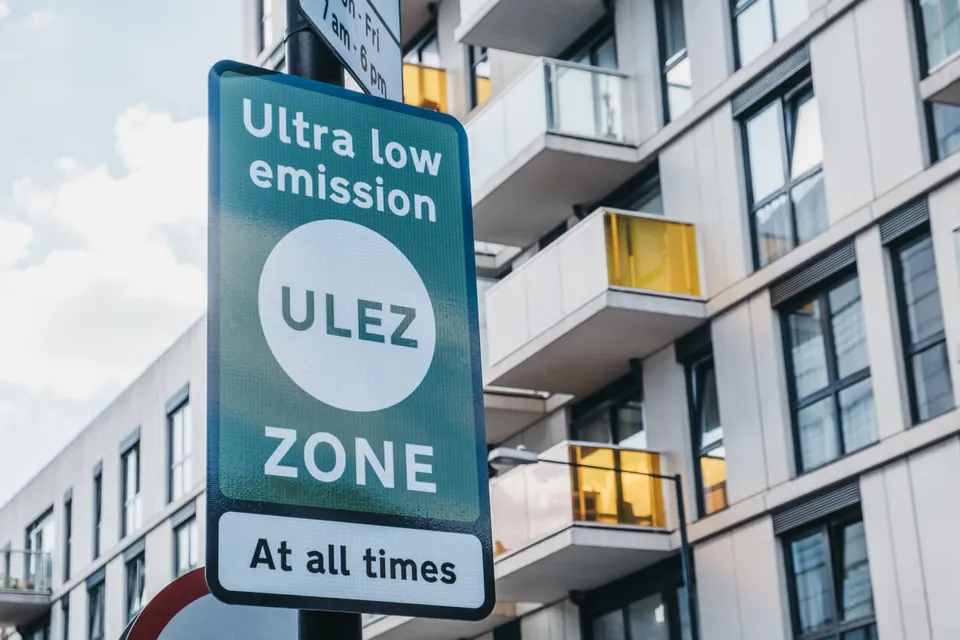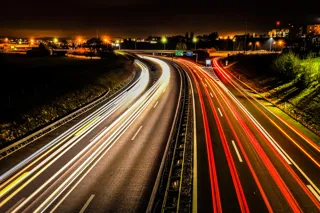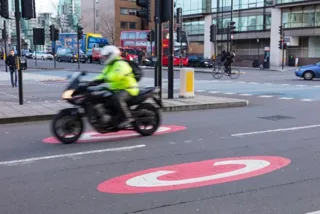The expansion of the ultra-low emission zone (ULEZ) to include Greater London and higher charges for all but the cleanest vehicles are being considered ahead of a possible road pricing scheme for the capital.
The Mayor of London says that 'bold action' is required now to improve air quality and cut congestion, but also wants Transport for London (TfL) to investigate the merits of road user charging technology.
FOR THE LATEST ON THIS STORY, CLICK HERE
It comes as a new report, published today (Tuesday, January 18) by Element Energy and commissioned by the Mayor of London, sets out the action required to move London towards net-zero carbon emissions by 2030.
The Mayor of London, Sadiq Khan, said: “Nearly half of Londoners don’t own a car, but they are disproportionally feeling the damaging consequences polluting vehicles are causing.
“We have too often seen measures to tackle air pollution and the climate emergency delayed around the world, because it’s viewed as being too hard or politically inconvenient, but I’m not willing to put off action we have the ability to implement here in London.”
The report sets out that to achieve required reduction in car use in the capital will need a new kind of road user charging system implemented by the end of the decade at the latest.
Such a system, says the Mayor, could abolish all existing road user charges – such as the congestion charge and ULEZ - and replace them with a scheme where drivers pay per mile, with different rates depending on how polluting vehicles are, the level of congestion in the area and access to public transport.
Subject to consultation, it is likely there would be exemptions and discounts for those on low incomes and with disabilities, as well as consideration around support for charities and small businesses.
However, recognising that the technology to implement such a scheme will take time, Khan says that action must be taken now.
The potential approaches under consideration in the short term are:
- Extending the Ultra Low Emission Zone (ULEZ) beyond the north and south circular roads to cover the whole of Greater London, using the current charge level and emissions standards.
- Modifying the ULEZ to make it even more impactful by extending it to cover the whole of Greater London and adding a small clean air charge for all but the cleanest vehicles.
- Introducing a clean air charge: a low-level daily charge across all of Greater London for all but the cleanest vehicles.
- Introducing a Greater London boundary charge, which would charge a small fee to non-London registered vehicles entering Greater London, responding to the increase in cars from outside London travelling into the city seen in recent years.
TfL says it will launch a public consultation on the short-term options, speaking to local government and businesses about the way forward.
Subject to consultation and feasibility study, the chosen scheme would be implemented by May 2024.
Gerry Keaney, chief executive of trade group, the British Vehicle Rental and Leasing Association (BVRLA), welcomed the Mayor's plans, which he said complemented the BVRLA’s ongoing support for shared mobility models and a "clear roadmap" for road pricing.
"Importantly, this announcement gives the industry time to implement the changes that are essential to making the targets reality," explained Keaney.
"London does not only have an emissions problem, it has a congestion problem too. We need fewer, cleaner private cars on the road.
"Car clubs, alongside rental and leased vehicles provide the solution to this while keep people mobile and offering positive alternatives to public transport."
The ULEZ currently covers an area up to, but not including, the North Circular Road (A406) and South Circular Road (A205). It was expanded in the autumn and is now 18 times larger than the original central London ULEZ, which had occupied the same area as the congestion charge zone.
Christina Calderato, director of transport strategy and policy at TfL, said: “Road based transport has for many years been a major contributor towards poor air quality and carbon emissions and we are determined to reverse this through a wide range of programmes across TfL.
“The world-leading road user charging schemes we've delivered throughout the last 20 years have been really effective in addressing congestion and tackling air quality across London, but it is clear that as a city we need to go further.
“These new approaches will allow us to take further steps towards a net-zero city and we will ensure that Londoners and those who regularly visit London are involved as we progress this work in more detail.”
The merits of a national road pricing scheme to plug a potential £40 billion shortfall from road taxes, including fuel duty, were expected to be investigated as part of the Government’s Net Zero Strategy, but were omitted from the final report.
Arguing the environmental benefits of road pricing, Khan says he wants greater support to reduce carbon emissions in London. It will also raise revenue for TfL, which recently had emergency funding from the Government extended until February 4.
Ministers agreed a £1.08bn funding package to help TfL recover from the coronavirus pandemic in June.
The bailout, which provided financial support for the hard-hit transport authority until December 11, followed two emergency support packages agreed in April and October 2020, and took Government support to TfL since March 2020 to more than £4bn.
Tanya Sinclair, policy director for the UK and Ireland at ChargePoint, said: “We support road pricing, so long as it is designed with drivers and fleet operators in mind.
"Road pricing needs to be considered in the context of all the taxes, incentives and payments drivers make. It’s a balancing act - the UK Government needs to make sure that it isn’t giving out grant incentives with one hand and then taking them back through road pricing.
"The road pricing formula must encourage drivers to make cleaner vehicle and driving choices and no EV driver should pay more or lose out as a result of road pricing. However, this doesn’t mean EVs should pay nothing. They use the road like any other vehicle and should contribute appropriately, especially when it comes to reducing overall congestion."
























Login to comment
Comments
No comments have been made yet.